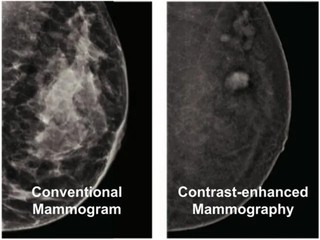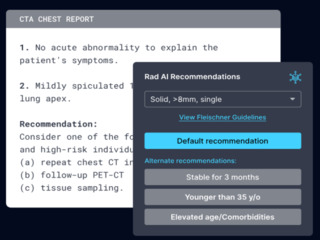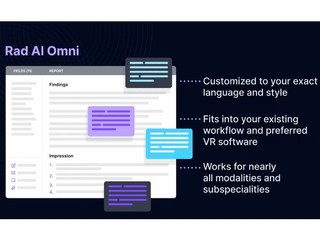Digital health funding declines for the third year in a row
AI-enabled digital health startups raised $3.7B, 37% of total funding for the sector
Read more... Radiation doses from computed tomography (CT) scans on patients are variable across patients and hospitals; those radiation doses that are beyond what are necessary to perform adequate CT scans can result in health risks. For example, a CT examination with an effective dose of 10 millisieverts may be associated with an increase in the possibility of fatal cancer.
Radiation doses from computed tomography (CT) scans on patients are variable across patients and hospitals; those radiation doses that are beyond what are necessary to perform adequate CT scans can result in health risks. For example, a CT examination with an effective dose of 10 millisieverts may be associated with an increase in the possibility of fatal cancer.
Of course, doses can be reduced through monitoring and feedback so, to help standardize radiation doses used in these CT scans, pharma giant Bayer announced an exploratory collaboration with Alara Imaging.
Alara is a company that works with health systems and health technology, providing them with software to securely perform modern medical imaging integration tasks. That includes creating security, visibility, and control for how data from health systems flows into their tech partners and to the cloud, as well as the ability for health tech partners to build modern medical imaging solutions with both on-premise health system access and cloud-enabled functionality.
The company also offers CMS Measure Compliance software, which allows for precise CT radiation dosing and enhance patient safety; that includes CMS patient safety measures developed in partnership with the University of California San Francisco (UCSF).
These new measures provide a standardized method for monitoring the performance of diagnostic CT to discourage unnecessarily high radiation doses, while still preserving image quality.
The new partnership with will combine Alara's solutions with Bayer’s Calantic digital solution platform.
Launched in 2022, Calantic gives radiologists access to tools and AI applications that support worklist prioritization, detection, and quantification. Features include workflow and picture archiving and communication systems (PACS) integrated IT architecture that enables deployment of multiple AI algorithms; a singular interface to interact with AI algorithms; s clinical Service lines that bundle individual AI algorithms for specific body regions; and a detailed review of legal, medical and regulatory requirements.
In June, Bayer partnered with Rad AI, a radiology automation platform, to bring Rad AI’s AI radiology operational solutions, including speech recognition reporting solution, AI-driven patient follow-up management, and automated radiology impression generation technologies, to Calantic.
Prior to that, Bayer revealed a partnership with Google Cloud to accelerate the development and deployment of AI-powered healthcare applications with a clear focus on radiology, using Google Cloud’s technology, including its generative AI tools.
This latest partnership with Alara is being announced as CMS has established a standardized method to monitor the performance of diagnostic CTs to discourage unnecessarily high radiation doses. That has involved the creation of new radiology patient safety electronic clinical quality measures (eCQMs), which use Alara Imaging software to access primary data elements stored within radiology electronic health records and translate them into data elements for eCQM calculation and reporting.
“As leaders in radiation dose management software, Bayer is thrilled to enter into this collaboration with Alara Imaging, Inc”, Rich Dewit, Global Head of Digital Solutions at Bayer, said in a statement
“Bayer is committed to helping Radimetrics customers by engaging with ALARA to support their institutions compliance with the new Hospital Quality Reporting eCQMs by leveraging the Alara gateway.”
(Image source: alaragateway.com)
AI-enabled digital health startups raised $3.7B, 37% of total funding for the sector
Read more...OXcan combines proteomics and artificial intelligence for early detection
Read more...Nearly $265B in claims are denied every year because of the way they're coded
Read more...



